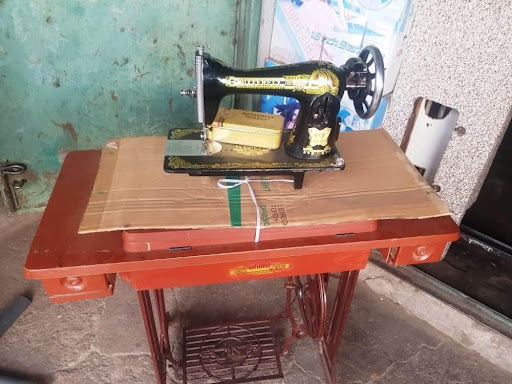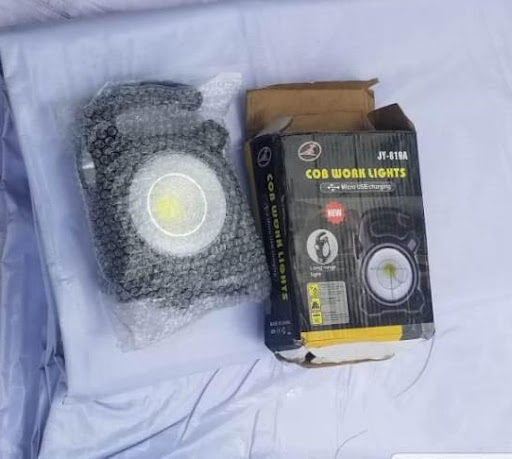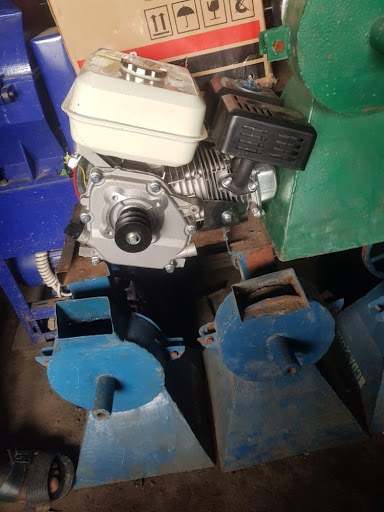Unmet Basic Needs Pushing Nigerian IDPs To Trade Their Aid Materials
For Internally Displaced People in Borno State, Northeast Nigeria, the problem is not just that they are not getting enough support, but that they are not getting the right ones.

Out of desperation, Internally Displaced People (IDPs) in Borno, Northeast Nigeria, are selling some of the foodstuff and non-food items donated to them to buy other essential items.
The situation is made unavoidable as a result of institutional challenges in the humanitarian programmes, misplacement of priorities, as well as irregularities in the distribution of relief materials.
According to a 2017 report by Save the Children, the World Food Programme (WFP), and other organisations, food commodities were identified as the most important needs by IDPs across three Local Government Areas in Borno State. This was followed by health commodities, shelter, and potable water.
The same report, however, noted that 60 per cent of the displaced people relied on local markets and service providers for their basic needs, while only 29 per cent reported relying primarily on the authorities and non-governmental organisations.
Despite the number of humanitarian organisations operating in the state and the amount pumped into humanitarian support yearly, findings show that the aids are either not sufficient to fully cater for the IDPs’ food needs or they do not reach the genuine beneficiaries.
To make up for the shortfall, IDPs are forced to sell some of the food items and economic empowerment materials given to them by donors to retailers. To address the gap, experts suggest it is important to scale up the food packages IDPs receive and streamline other relief materials to conform with their genuine nutritional needs.
Abatcha (last name withdrawn), a young man in his early 30s dusts a solar and AC rechargeable lantern with a white plain cloth to make it attractive. He is a displaced person-turned-trader who runs his business at the roadside market of Muna Displacement Camp in Maiduguri.
“It is very qualitative and cheap,” Abatcha said reassuringly. The commodity he was selling is one of the many lanterns meant to light up temporary tents of the IDPs. But they found their way to the market despite “not for sale” labels.

Most of the IDPs in Muna and others in many of the formal and informal camps have been in Maiduguri for the past six years, having been driven out of their homes by the decade-long Boko Haram insurgency that has plagued the Northeast. The crisis has claimed the lives of over 37,000 people and displaced over two million others.
The government of Borno State, which hosts the majority of all IDPs in the region, has closed some of the camps and is planning to close others this year while simultaneously returning displaced people to their former homes.
The World Food Programme (WFP) has been providing support in the area of food security to IDPs and refugees in the region for years. The United Nations agency has gradually been shifting focus away from the direct donation of food items to cash-based transfers (CBTs). Beneficiaries receive cash or tickets worth about N17,000. According to its 2020 annual country report, last year 1.6 million people benefited from the resource transfer of about $67 million.
N17,000 is, however, not enough to last a displaced household for one month. According to the 2017 Save the Children report, a family of seven to nine members would require an average grant of between N83,000 and N99,000 monthly to meet their basic needs, depending on location. And this would have increased over the years owing to inflation.
“They bring them here for us to buy and some of our business colleagues used to go into the camps to buy there,’’ said Abatcha, explaining that they have to sell them to buy food because the support they get is not sufficient to sustain them.
Abubakar Modu, a civil security volunteer member in Muna and also an IDP from Marte LGA of Borno State, further noted that “there is a lot of fraud in the food distribution [as] they give SIM cards to outsiders and some people are planted as proxies to collect and share the food items with the officials.”
Abubakar claimed that the fraud has blocked the chances of accessing food ration for many IDPs. When HumAngle asked why food items distributed to IDPs are seen in the markets if they are truly not enough, he explained that they sell them to buy other food ingredients not included in the packages given to them.
With the state Government taking over the distribution of food to IDP returnees in many Local Government Areas, beneficiaries say the irregularities have reduced.
“The Governor would sometimes come and distribute cards in the camps himself. With this measure, all those who were present at the time got the card and there was no collection by proxy,” said Musa Kalla, an IDP from Marte who stays at a displacement camp in Monguno. He confirmed that cards mostly went to the wrong hands because certain NGOs distributed aid through food vendors in the town.
Mallam Sale, an IDP from Gwoza and a technician specialising in the repairs of grain-processing machines, told HumAngle some displaced people sell their machines to him for resale to afford. “The Government and the NGOs are not giving enough food to the IDPs. What would you grind if there is no food?” he asked rhetorically. “So they sell to buy food.”

Fatima Jidde stands beside her husband, Jugudum Mala, at a shop in Gamboru Market to sell a sewing machine to the shop owner. The machine was given to her by the Danish Refugee Council (DRC) as part of an economic empowerment start-up grant after a short training on tailoring.
“It is sold for close to N50,000 in Monday Market and you are pricing at N20,000?” Jugudum asked. The shop owner argued that “it is a second material no matter how new it looks; so you cannot compare it with a new one that is well packaged. The packaging of your machine is already tempered.”
“You know, we are IDPs and we are selling this to buy food for our family. So you should not exploit us to that extent,’’ replied Jugudum in a polite but contesting tone.
“Because of you, I would add N5,000 to make it N25,000. Even if you take it somewhere else, it would never fetch the price of a new one,” the retailer insisted before the couple finally gave in and sold the machine.
Experts suggest the solution to the challenges as giving utmost priority to the provision of appropriate food aid packages to the IDPs and streamlining the activities of other aid organisations in the non-food sectors so that they do not disregard the food needs of displaced people in their programmes.
“The aid organisations and their sub grantees should redesign their intervention programmes toward repackaging their aid in consonance with real demands of the IDPs,’’ said Hassan Bala, a humanitarian analyst with knowledge of the food distribution by NGOs in Maiduguri.
“In this case, they should take into consideration the sufficiency and relevance of the food items they package. Unless this issue is squarely addressed, the gap in the provision of food would continue to persist and you would continue to see relief items meant for IDPs littering our markets.”
This report is a partnership between HumAngle Media and Premium Times Center for Investigative Journalism (PTCIJ) under the ‘Accountability Journalism & Investigative Reporting for Deepening Democracy and Development’ project.
Support Our Journalism
There are millions of ordinary people affected by conflict in Africa whose stories are missing in the mainstream media. HumAngle is determined to tell those challenging and under-reported stories, hoping that the people impacted by these conflicts will find the safety and security they deserve.
To ensure that we continue to provide public service coverage, we have a small favour to ask you. We want you to be part of our journalistic endeavour by contributing a token to us.
Your donation will further promote a robust, free, and independent media.
Donate HereStay Closer To The Stories That Matter




